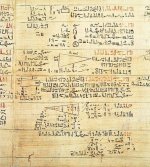A post in the Israeli Jar thread got me thinking.
What discoveries do we know of that were discovered by more than one society (or person) in more than one place?
Pyramid structures.
Use of hallucinogenic drugs (as per the interesting post by @grunion ).
Beer/alcohol.
What else?
And have you ever thought of an invention only to find it already existed? I have.
What discoveries do we know of that were discovered by more than one society (or person) in more than one place?
Pyramid structures.
Use of hallucinogenic drugs (as per the interesting post by @grunion ).
Beer/alcohol.
What else?
And have you ever thought of an invention only to find it already existed? I have.









